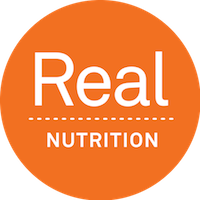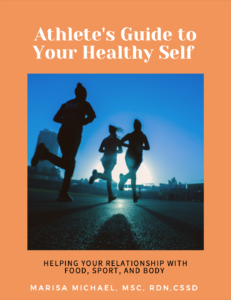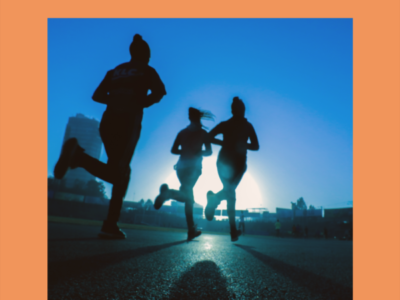I Was Sick Enough: My experience with disordered eating as an Olympic athlete
By Morgan Arritola
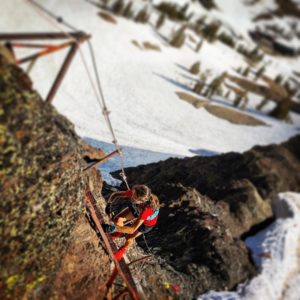
Photo credit Pete Vondenberg
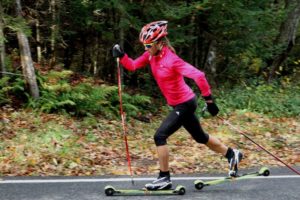
Photo credit Broken Arrow Team
Trigger warning: This article contains some descriptions of disordered eating.
I grew up in the days of the McDonalds “bucket of fries.” Yes friends, there was literally a bucket and let me tell you, after soccer practice I could easily take those down. That being said, I grew up with a single mom and I was on the go, food was a fuel that kept my engine running at high speed but something I never gave much thought to. While this was still the days of the OG power bar that doubled as a jaw workout, food labeling wasn’t in my lexicon. I ate well most of the time but I really had a solid intuition of what I needed and when. It wasn’t until high school when I was afforded an opportunity to attend a private high school in a very affluent community that I began a slow, deleterious relationship with food and how it related to my sport. Simultaneously, I entered the world of endurance sports (cross country skiing) and quite quickly excelled. I loved skiing, I loved the modalities that training presented, I loved scaling peaks in the summer, and long skis in the woods in the winter but anyone who has done enough skiing knows that it’s one of the most metabolically demanding sports and I was simply uneducated.
Relationships take time to grow and disordered eating is no different. It’s an insidious behavior, thought, or curiosity that will begin to occupy your mind on loop until it’s taken up all of the space and energy you once devoted to your passion. My own disordered eating reached its apex about three years into my professional ski career. The crescendo had been building as I fixated on being healthy, mirroring those around me who ate clean, training harder and faster than ever, and normalizing my amenorrhea as part of the game. This pay to play mentality left me chronically just a little low on fuel and ultimately very low on body weight, energy, and mood. I was never SICK ENOUGH (If you have not read Dr. Gaudini’s book or followed her work it’s a must-do) so I stayed in a purgatory of mediocre results and declining self worth.
Yes, there were countless mis-steps by coaches, athletic staff, doctors but at the end of the day I saw the power and virality of eating disorders. Some of my teammates suffered tremendously and at times, girls would simply disappear from the racing scene. No one really spoke about them, as if it were some disease you didn’t want to get. They were praised when they were racing fast with comments such as “your strength to weight ratio is off the charts” or “what a six pack” and when they broke they sank in silence. I often feel guilt for not reaching out to those who sank quickly, those who truly suffered. I followed doctors orders, took oral contraceptives to appear to have a normal period, took calcium but I still trained like hell.
And most importantly, I had no one to talk to about it. The mental game was purely sport psychology based and if you didn’t perform, then the training needed to be better, harder. No one ever just asked how I was doing. Ultimately, in 2010, after a tearful Olympics in which I was flat out exhausted, I began to wave goodbye to the sport that had once made me feel so strong and fearless.
I am still on a journey back from more than a decade of treating my body at suboptimal levels. The rebuilding of the relationship to myself has been a slow and damn hard process. I would not say it was purely a food thing or a training thing but I will say with certainty it was a mindset thing. My relationship with sport has been slow to come around and that parallels my thoughts of food. I often think, well I didn’t exercise today so I probably don’t need that bowl of ice cream. And then I stop myself.
This has taken a lot of work but I overrode that central governor that has remnants of what I am supposed to do or be as an athlete and I try to really tap into my intuition. If I want it, then eat it and no guilt, no excess energy spent on the food choice. Do it and be done. I am a work in progress, we all are and now I find myself diving into the education side of the mind and body. I want to help those athletes I coach and the people in my community who need that one person to take notice and to just be there with them, next to them through their journey back to health. Whatever that looks like.
And here is the sticking point, if you take one thing from this please listen up. Education and communication around nutrition, body image, training, and the physiology of young athletes in sport is imperative to a long term career that is healthy and fulfilling. No athlete should chase immediate success and appear as a “fly by night” in the sport in which they once found joy. Lack of nutrition will rob you of joy. It will rob you of relationships. It will make you unrecognizable to the lovely, salty, vibrant person you once were.
~Editors note: If you or someone you know is suspected of struggling with disordered eating, please get immediate help. Call the National Eating Disorder Association hotline at 1-800-931-2237.
A huge thank you to Morgan Arritola for reaching out and offering to write this post. Our hope is that it can help athletes who may be struggling from disordered eating thoughts and beliefs.
For more resources, check out our Athlete’s Guide to Your Healthy Self! A 56-page downloadable PDF that is designed for athletes, coaches, and parents to understand more about eating disorders and how to heal your relationship with food, body and sport. It has infographics, journaling prompts, and so much more.
